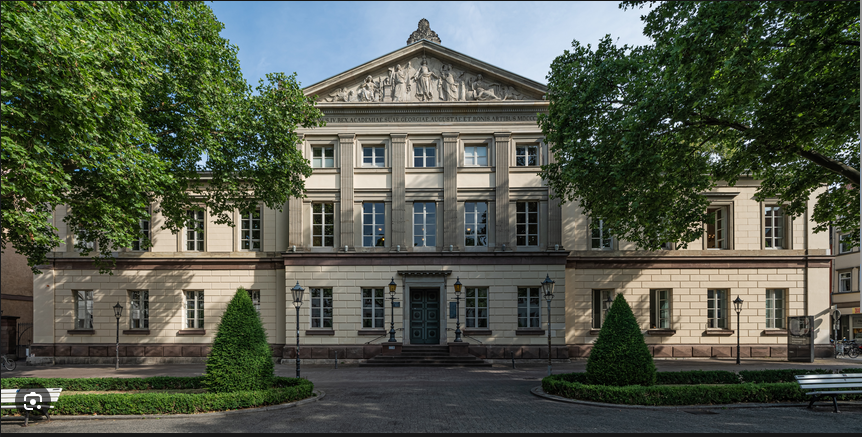Speaker
Description
Propagated by Ayatollah Khomeini, the founder of the Islamic Republic of Iran (IRI), and his successor Ayatollah Khamenei, self-sufficiency in food production especially wheat is one of the ideological pillars of the IRI since its creation in 1979. Primarily, self-sufficiency was an attempt for independence from the confronting sides in the Cold War, i.e. the United States, the Soviet Union and their allies. The idea of self-sufficiency especially food items has even found its way to the constitution of the new Islamic regime in 1979. Later on, the self-sufficiency policy in food production particularly wheat has been followed continuously even after the end of the Cold War by large investments in irrigation infrastructure and several support schemes for farmers in Iran. Nevertheless, continuing this policy aiming to establish self-sufficiency is challenged by two factors: population growth and diminishing disposable water resources for irrigation. Firstly, the IRI followed a population growth policy since 1979. As a result, the population turned from 36 million in 1979 to 83.2 million in 2023. Thus, the size of the domestic food supply needed to establish food security has increased strongly. Secondly, agricultural production generally and wheat production specifically require sufficient availability of water resources. However, as Iran is dominated by an arid and semi-arid climate, variation in the level of precipitation is high. Furthermore, precipitation is decreasing due to climate change, negatively affecting the rainfed and irrigated agricultural production systems, particularly for wheat production.
Nevertheless, the IRI is insisting on food self-sufficiency which should be primarily achieved through irrigation. This persistence of self-sufficiency by the IRI as the main agricultural policy has induced massive expansion of the irrigation wells, massive expansion of reservoirs over seasonal or permanent rivers, massive energy subsidies (electricity or fossil) for water pumping from surface or groundwater resources and even employing unconventional water resources such as treated or untreated wastewater for irrigation. Through this policy, the number of wells has increased from less than 60000 in 1976 (before the Islamic revolution in 1979) to more than a million in 2021. Additionally, the number of critical aquifers has increased from 53 in 1978 before the Islamic revolution to 410 in 2023 (the total number of aquifers is 609). These are aquifers that have negative water balance and further digging of wells is forbidden in their area. Additionally, the whole country is suffering from massive land subsidence (one of the highest in the world). Furthermore, despite providing huge subsidies for pumping, the capacity of aquifers is reducing due to over-exploitation of groundwater resources. As a result, the water quality of groundwater resources which is the main source of domestic water demand is reducing. The climate change has also affected the available water from rivers and dam reservoirs. Therefore, there are water shortages for both irrigation and domestic mainly in summer steadily causing tension in different parts of the country. Despite all these consequences of the primary food self-sufficiency policy that is introduced to the society and environment, the IRI has no plan to give it up. More than 44 years of support by IRI to the agriculture sector through massive subsidies has created rural communities that are heavily dependent on subsidized irrigation water and subsidized energy for pumping that is an issue of political economy (Jaghdani & Kvartiuk, 2021).
The food system conceptual framework provides a possibility to look into the food self-sufficiency policy as an influential factor in the national food system of Iran besides other factors in an interdisciplinary way. This conceptual approach allows for formulating the role of self-sufficiency policy in a condition such as Iran that 1) depends on irrigation water for food production 2) meets water shortages for domestic usage. By integrating the political economy framework for reform (Vos et al., 2023) into the food system conceptual framework of HLPE (2020), we try to formulate the possible danger that the contemporary food self-sufficiency policy of IRI has for future water insecurity of Iran.
Therefore, in this study primarily, the historical background of the self-sufficiency ideology is analysed. Furthermore, other factors that affect the food system at the national level are studied by following a cause-and-effect approach and they are extracted from available literature namely: population growth, climate change, food security, agri-food trade, laws, regulations and the political economy of irrigation water subsidy. Furthermore, the historical statistics on water resources development plans and projects, water extraction for irrigation, food production and food trade which are acquired from different official sources are presented. Additionally, the list of rules and regulations that guided the policies and budgets for food self-sufficiency are presented. Finally, by employing the adapted food system conceptual framework, the danger of the available self-sufficiency policy for both the food system and future water insecurity are analysed. We conclude that food systems are not just a linear chain of activities spreading from production to consumption (Bene et al. 2019) but it has feedback from systems activities to other activities. While food security is one outcome of food systems, self-sufficiency is not the way forward because of negative feedback loops with other elements of the food system such as water insecurity in future.
References
Béné, C., Prager, S. D., Achicanoy, H. A. E., Toro, P. A., Lamotte, L., Cedrez, C. B., & Mapes, B. R. (2019). Understanding food systems drivers: A critical review of the literature. Global Food Security, 23, 149–159.
HLPE (2020). Food security and nutrition: building a global narrative towards 2030. Committee on World Food Security. High Level Panel of Experts on Food Security and Nutrition (HLPE). Report No 15
Jaghdani, T. J., & Kvartiuk, V. (2021). The Energy-Water Nexus in Iran: The Political Economy of Energy Subsidies for Groundwater Pumping. In S. Hülsmann & M. Jampani (Eds.), A Nexus Approach for Sustainable Development (1st ed., pp. 107–128). Springer, Cham.
Vos, R., Martin, W., & Resnick, D. (2023). The Political Economy of Reforming Agricultural Support Policies. In D. Resnick & J. Swinnen (Eds.), The Political Economy of Food System Transformation (pp. 54–79). Oxford University

